Do you have a kitten? If so, you may be wondering if they are born with fleas. Fleas are a common problem for kittens, and it is important to take steps to prevent them from becoming infected.
In this blog post, we will discuss the signs of flea infestation in kittens, as well as how to get rid of them.
Key Takeaway
- Kittens are not born with fleas, but can become infested immediately after birth from their mother or other animals they come into contact with.
- To check if a newborn kitten has fleas, use a flea comb to look for jumping fleas, flea dirt, or other signs of infestation, and consider giving a gentle bath with dish soap.
- It is generally not recommended to use flea treatments on 1-week old kittens, so the best way to get rid of fleas is to use a flea comb and give the kittens a bath with warm water and mild soap.
Are Kittens Born With Fleas?
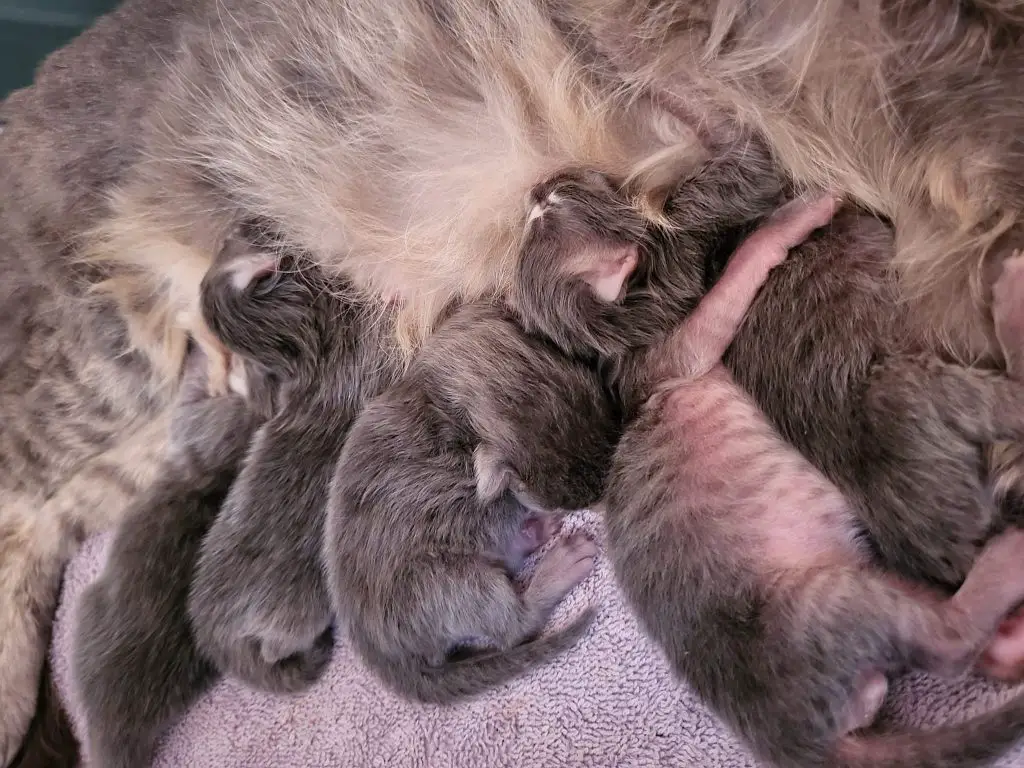
No, kittens are not born with fleas, however, they can pick up fleas from their mother or other animals they come into contact with.
Kittens are especially vulnerable to fleas because they are not yet fully developed and do not have a strong immune system.
There are a few ways that newborn kittens can get fleas. The most common way is if the mother cat has fleas. The fleas will jump from the mother cat onto the kitten while they are nursing.
Another way is if the kitten comes into contact with an area that has been infested with fleas, such as a carpet or piece of furniture. Finally, kittens can pick up fleas from other animals outside, such as dogs or wild animals.
Fleas on kittens are a common problem for pet owners. These tiny insects can cause a great deal of discomfort for your furry friend, and can even lead to serious health problems if left unchecked. However, this doesn’t mean that your kitten is doomed to a life of flea infestations.
If you notice your newborn kitten has fleas, don’t panic. There are a few things you can do to get rid of the fleas and keep your kitten healthy.
First, bathe your kitten in warm water with mild soap. This will kill any fleas on your kitten’s fur. Next, comb your kitten’s fur with a fine-toothed comb to remove any eggs or larvae.
Finally, treat your kitten’s environment by vacuuming and washing all bedding and toys. With some patience and effort, you can get rid of those pesky fleas!
How Can I Tell If My Newborn Kitten Has Fleas?
You can tell if your newborn kitten has fleas by performing a thorough intake exam and using a flea comb to check for jumping fleas or flea dirt. Here are some tips on how to deal with fleas on newborn kittens:
Perform a thorough intake exam
It is important to check all kittens for fleas as part of a thorough intake exam. Use a flea comb to check for jumping fleas, flea dirt, and other signs of infestation.
Use a flea comb
A flea comb is the safest and most efficient way to remove fleas from newborn kittens. You can buy a flea comb at your local pet store and use it to gently comb out any fleas or flea dirt.
Give a gentle bath
A gentle bath with dish soap can help kill live fleas and wash away larva and flea dirt. Be sure to exercise caution when bathing the kitten, as baths can be stressful and should be done carefully.
Use flea prevention methods
Flea prevention methods recommended by your veterinarian can help to keep your kittens and their mother flea-free. Regular check-ups and treatments for fleas can ensure that your kittens grow up healthy and happy says WikiHow.
Is It Bad If Newborn Kittens Have Fleas?
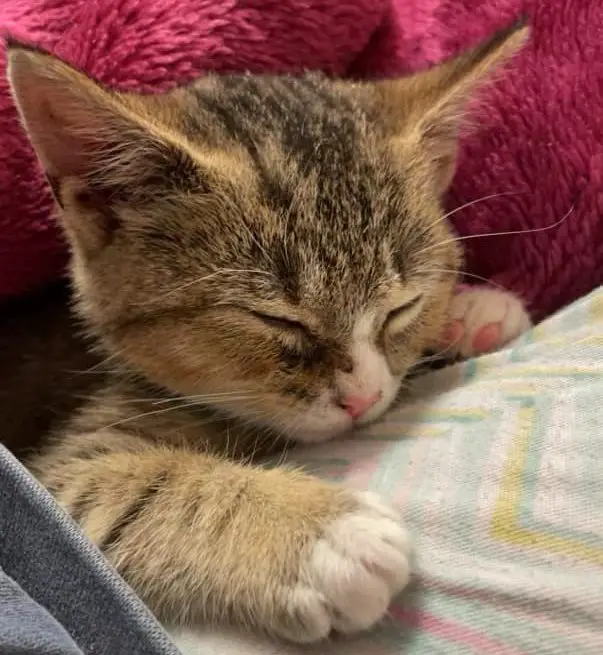
Yes. It is bad if newborn kittens have fleas. Fleas can actually pose a serious threat to newborn kittens.
That’s because their immune systems are still developing, which makes them more susceptible to diseases carried by fleas. In fact, if left untreated, flea infestations can even lead to death in young kittens.
Kittens are not born with fleas, they get them after birth. There are a few ways that newborn kittens can get fleas. The most common way is through contact with other animals that have fleas.
This can happen when the kitten is born in an environment where there are other animals present, like a shelter or rescue. Mama cats can also pass fleas on to their kittens while grooming them.
Fleas are not only annoying, but they can also transmit diseases to newborn kittens.
Some of the diseases that fleas can carry include:
- Typhus fever
- Plague
- Cat scratch disease
- Tularemia
Fleas are more than just a nuisance – they can actually be dangerous for newborn kittens. Flea bites can cause anemia and even death in young kittens.
That’s why it’s so important to make sure that your kitten is protected from fleas, even if they’re still nursing. The best way to do this is to speak with your veterinarian and follow their recommendations for flea prevention and treatment.
How To Get Rid Of Fleas On 1 Week Old Kittens
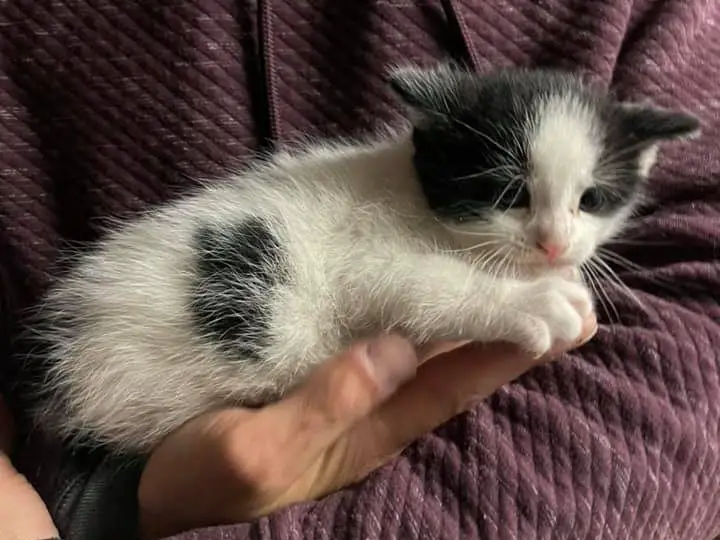
1-week old kittens are way too young and fragile to have fleas. Taking action is very important in making sure your kittens are fleas-free so they can grow up and develop.
Here is how to get rid of fleas on 1-week old kittens:
1. Identify the source of the fleas
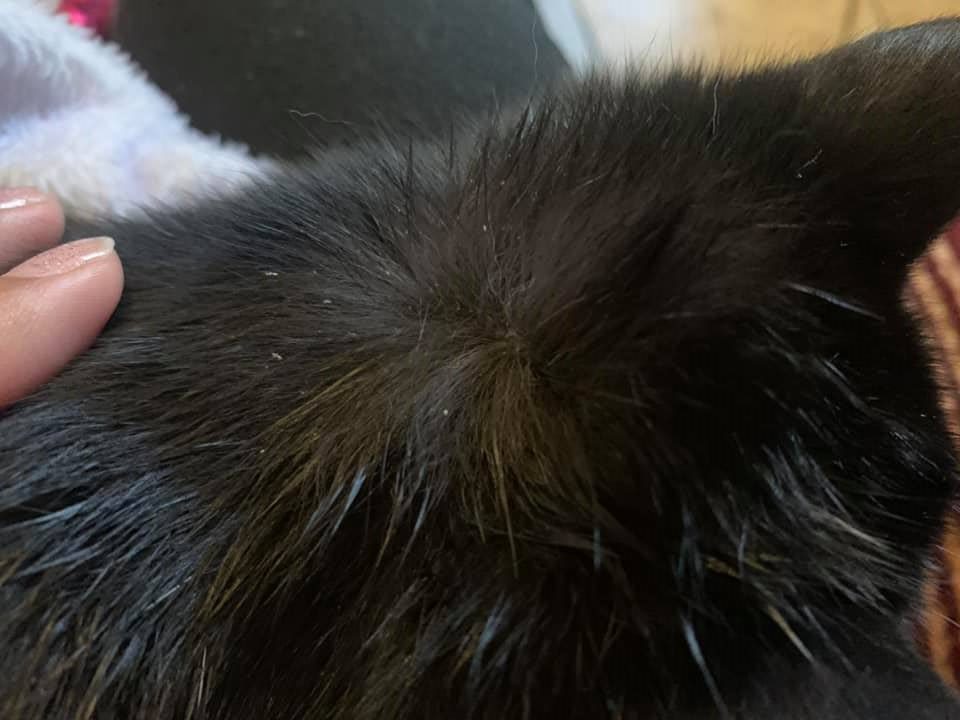
There are a few things you can do to try and identify the source of your cat’s fleas. As kittens are not born with fleas, they get them from someone or something.
First, take a look at your cat’s environment. If you have other pets, check them for fleas as well. Secondly, consider recent changes in your home or surrounding area.
Have you recently had landscaping done? Did someone in your neighborhood get a new pet? These could be potential sources of fleas.
Finally, if you have ruled out all other possible sources, it’s time to consult a professional. A vet or pest control specialist will be able to help you figure out where the fleas are coming from and how to get rid of them.
2. Bathe the kittens with fleas
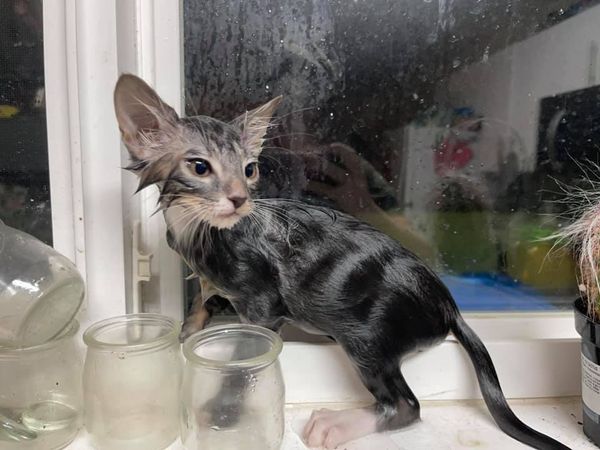
Bathing a one-week-old kitten with fleas is a delicate job. You will need to use a wet cloth and gently wipe them down.
Be sure to avoid getting water in their eyes, nose, or mouth. You can use a pet-safe shampoo if you wish, or a mild soap. Once the kitten is clean, be sure to dry them off completely with a towel.
Place the towel in a dry area so they can finish drying off on their own. It is important to keep kittens warm after bathing, so consider placing them near a heating source or using a hair dryer set on low heat.
3. Comb the kittens with fleas
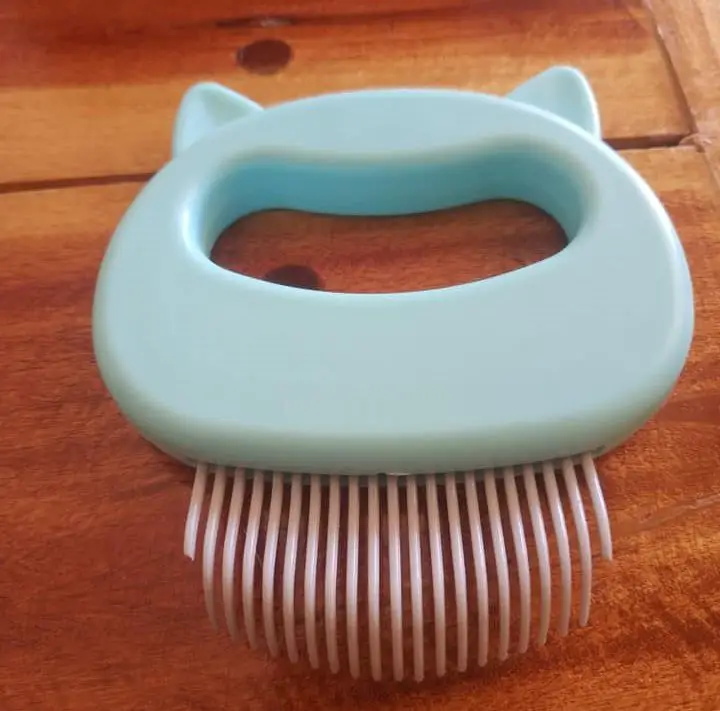
To comb the kittens with fleas you will need a comb, some water, and a towel. Wet the kitten’s fur with the water. This will help to loosen the fleas and their eggs.
Start at the head of the kitten and work your way down its body. Use gentle strokes as you comb through its fur. Dip the comb in the water after each stroke to remove any fleas or eggs that have been caught in it. Dry off the kitten with the towel when you are finished.
Since we are talking about week-old kittens, this whole procedure can be done next to a heating source. We don’t want the kittens to get cold and get sick.
4. Get a flea product for kittens
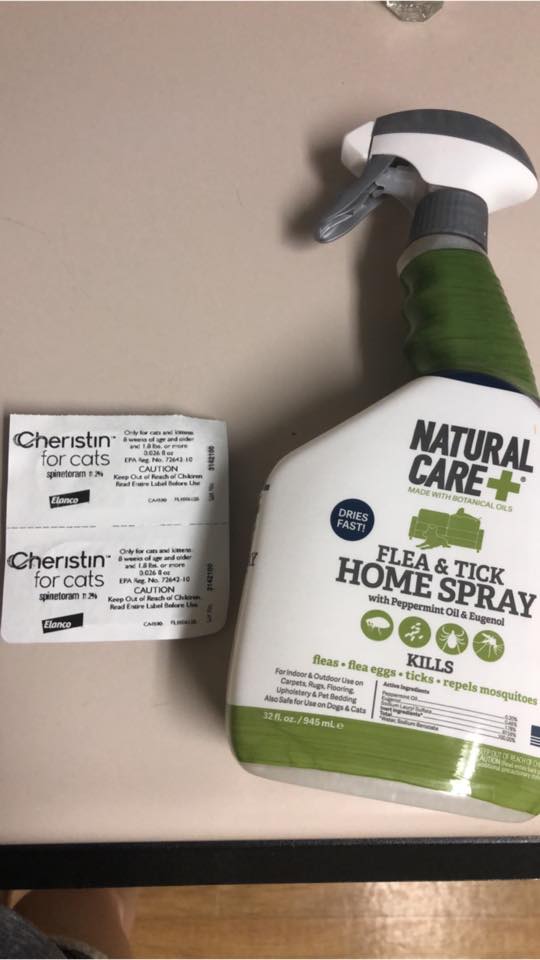
There are a few different types of flea products for kittens. The most common are spot-on treatments, which are applied to the back of the neck. These work by releasing a pesticide that kills fleas when they bite the treated area.
Spot-on treatments are typically the most effective way to kill fleas on kittens, but they can be expensive. Oral medications may be a cheaper option, but they require a prescription from your veterinarian.
Collars can also be effective, but they may not be as long-lasting as other options. Talk to your veterinarian about which flea product is best for your kitten’s individual needs.
There are a few things to keep in mind when using any type of flea product on your kitten. Always follow the instructions on the package carefully.
Never use a dog flea product on a kitten, as it can be toxic. Be sure to apply the product in a well-ventilated area, and do not allow your kitten to lick the treated area until it is dry.
Is It Common For Kittens To Have Fleas?
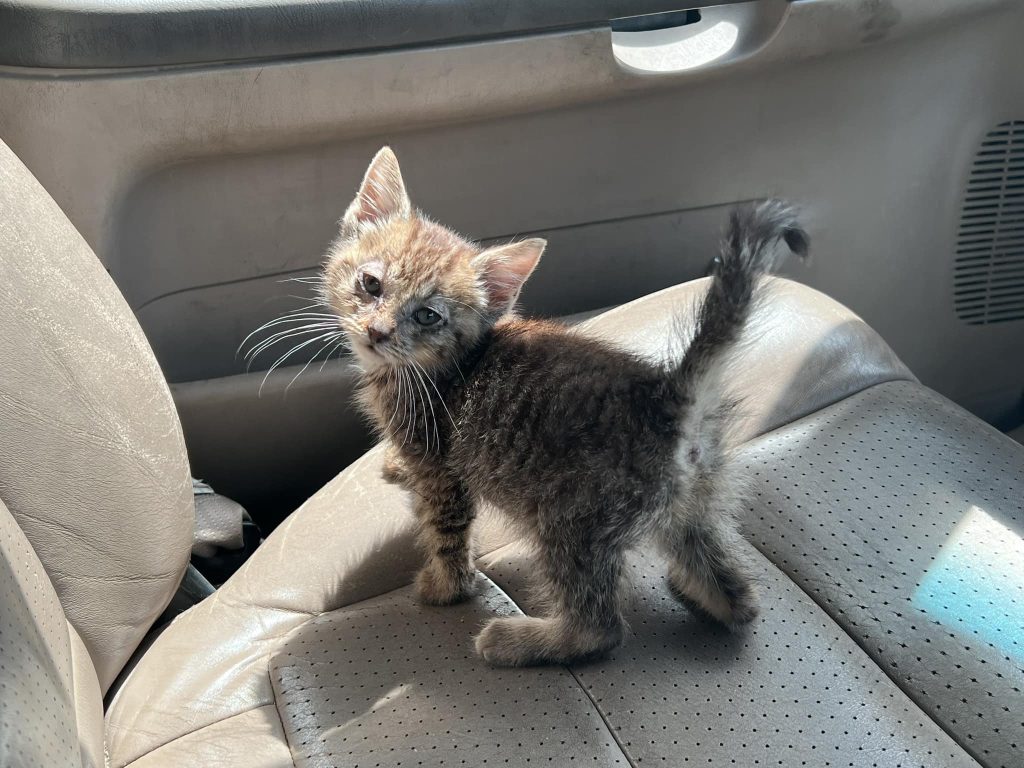
No, it is not common for kittens to have fleas. Kittens are typically born without fleas and acquire them from contact with other animals or contaminated surfaces.
If you think your kitten has fleas, take a close look at its fur. You may see small black dots on the skin or in the fur. These are flea dirt, which is actually feces deposited by adult fleas.
If you see these telltale signs, consult your veterinarian to confirm the diagnosis and get treatment recommendations. Treatment for fleas on kittens is different than for adult cats and must be done carefully to avoid harming the kitten. In some cases, oral medications are not safe for use in kittens and alternate treatments must be used.
If newborn kittens get fleas, they may experience a number of problems. The most serious problem is anemia, which can be caused by the loss of blood from flea bites. Kittens can also suffer from skin irritation, restlessness, and poor growth. If you suspect your kitten has fleas, take them to the vet for treatment.
There are a few things you can do to prevent your kitten from getting fleas in the first place. The best way to prevent fleas is to keep your kitten indoors. If you must take them outside, make sure they’re always supervised so you can catch any fleas that might jump on them.
You should also regularly check your kitten for fleas and treat them with a flea preventative. By taking these precautions, you can help keep your kitten healthy and free of fleas.
FAQs
Q: Can I use flea treatment on newborn kittens?
A: It is not recommended to use flea treatment on newborn kittens, as they are too young. Consult with a veterinarian for safe and appropriate flea control options for young kittens.
Q: How can I remove fleas from newborn kittens?
A: The best way to remove fleas from newborn kittens is to use a flea comb. Gently comb through their fur, focusing on the areas where fleas are most likely to hide.
Q: When is it safe to use flea treatment on kittens?
A: It is generally safe to use flea treatment on kittens when they are at least 8 weeks old. However, always follow the instructions provided by the flea treatment product and consult with a veterinarian.
Q: How can I prevent fleas on newborn kittens?
A: To prevent fleas on newborn kittens, it is important to regularly treat the mother cat for fleas. This will help reduce the chances of fleas infesting the kittens.
Q: Can newborn kittens bathe to remove fleas?
A: It is not recommended to bathe newborn kittens to remove fleas. Their immune systems are still developing, and bathing could cause them to become chilled. Use alternative methods such as a flea comb to remove fleas.
Q: Can I use adult flea products on newborn kittens?
A: No, adult flea products should not be used on newborn kittens. These products are designed for adult cats and may be too strong for the delicate systems of newborn kittens.
Q: How long can it take to get rid of fleas on newborn kittens?
A: Getting rid of fleas on newborn kittens may take several weeks. It is important to be persistent in flea removal methods and consult with a veterinarian for appropriate treatment options.
Q: Are there any specific flea combs I should use on newborn kittens?
A: Yes, you can use a fine-toothed flea comb on newborn kittens to remove fleas. Make sure the comb is safe for use on kittens and has bristles close enough to catch small fleas and flea eggs.
Conclusion and final thoughts
In conclusion, we have learned that kittens are not born with fleas.
While it is possible for them to acquire fleas shortly after birth due to their mother’s infestation, it is not a natural occurrence for kittens to be born with fleas.
As responsible pet owners, it is important to keep our furry friends free from flea infestations by regularly grooming and treating them with preventative measures.




